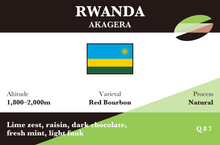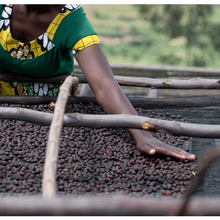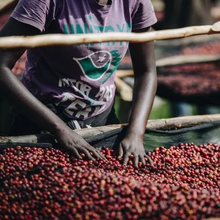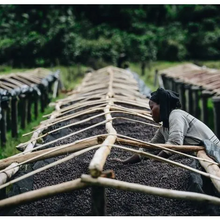RWANDA (Akagera)
- Vendor
- Broadway Coffee Roasters
- Regular price
- £11.00
- Sale price
- £11.00
- Regular price
-
- Unit price
- /per
Adding product to your cart
About This Coffee
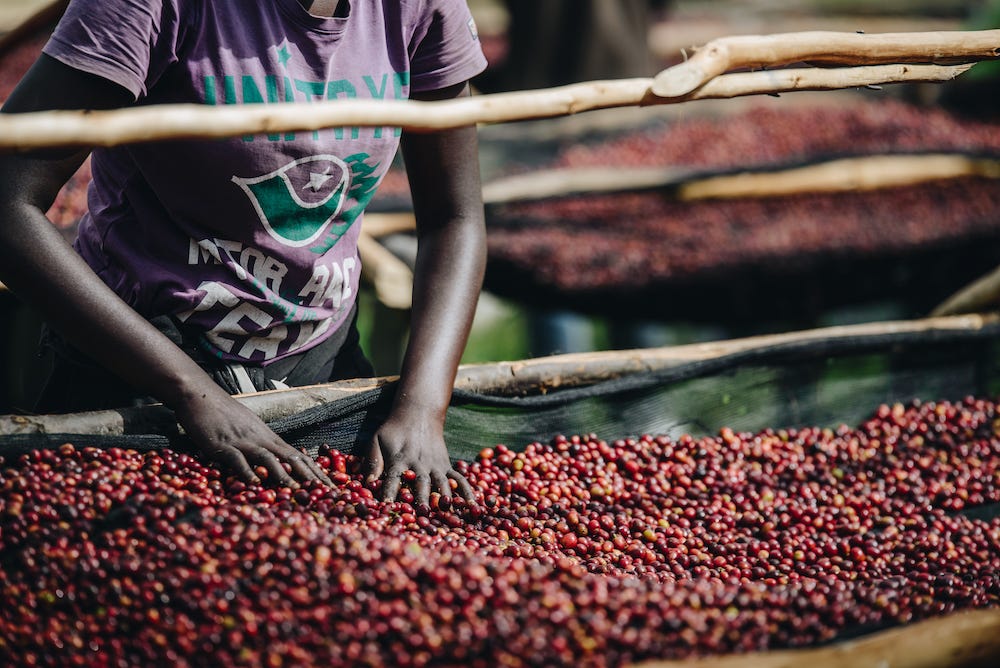
This natural processed lot is from Muhura washing station, operated by Gasange Co-operative in the Akagera region of eastern Rwanda. Gasange work with 1,315 registered small holder farmers in the area.
Gasharu coffee is managed by Valentin Kamenyi. Growing up in rural Rwanda in the 1990s, coffee had a mythical quality to it. "I was told coffee beans were sold abroad to make bullets. This was intriguing to me as I always imagined bullets to be magical, small and yet so noisy and powerful,” he recalls. Of course these child hood tales are now a thing of the past, yet coffee still carries special significance to him as the heart of his community.
The Process
Ripe cherries are carefully selected - first by hand and then by floatation. The cherries are then dried in the sun on raised African beds for 30-40 days depending on the weather. During this period the coffee is sorted by hand to remove any physcial defects and is regularly turned to ensure even drying and prevent over fermentation or mould formation. The coffee is covered during rain or midday sun to protect it from damage.
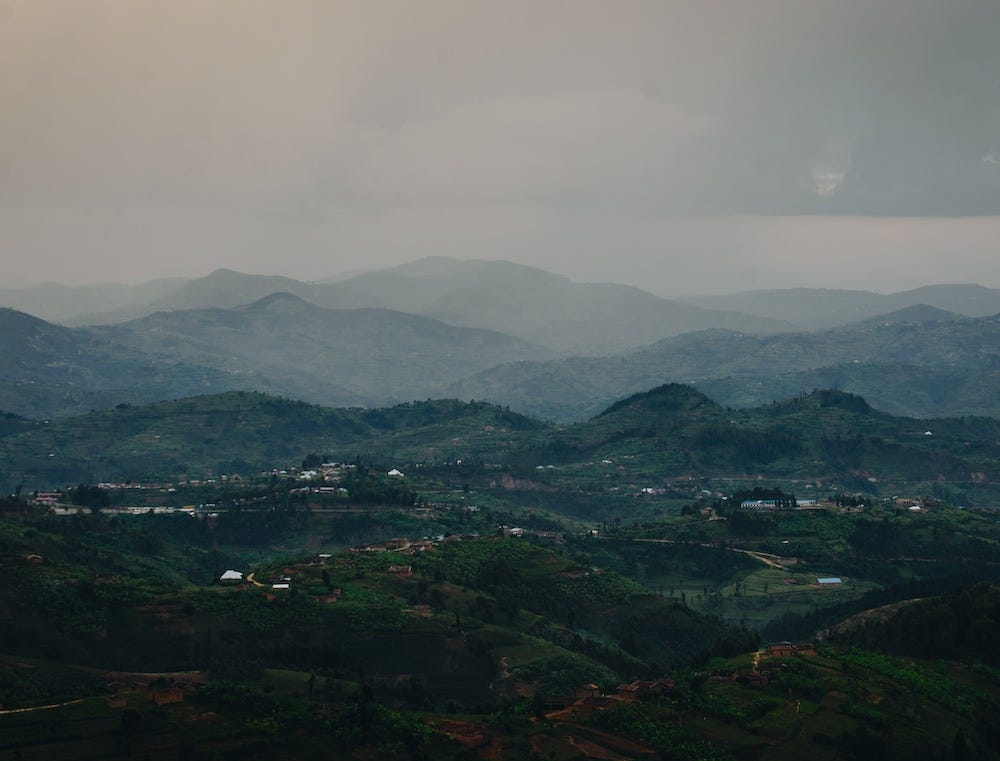
History of Coffee in Rwanda
The commercialization of coffee came about gradually in Rwanda and coffee was always produced on smallholder farms. Independence brought some improvement to the coffee infrastructure as the government established more modern and centralizing processing. But this meant the government set the price they would pay for coffee and farmers had no other options. There was no focus on quality because there was no incentive whatsoever. Despite much of the coffee being Bourbon, there was no sorting or grading so all the coffee was commercial grade. Rwanda exported 642,000 bags of coffee in 1993 and 447,000 in 1994. Then, as something of a stark reminder of the genocide, Rwanda exported a mere 22,000 bags in 1995. Today, Rwanda exports only 43% of what it did in 1993, but current exports represent much greater value because for the last 20 years the focus has been on quality rather than quantity. Rwanda’s ideal growing conditions are no longer wasted on poor processing. New washing stations have opened in all coffee growing regions, innovative cupping labs that arrive built into shipping containers, and cooperatives have been established. For the last 10 years, Rwandan specialty coffees consistently rank among the finest in the world.
- Reviews
- Questions
Thank you for submitting a review!
Your input is very much appreciated. Share it with your friends so they can enjoy it too!
Good quality coffee
Nice flavour. Highly recommend





